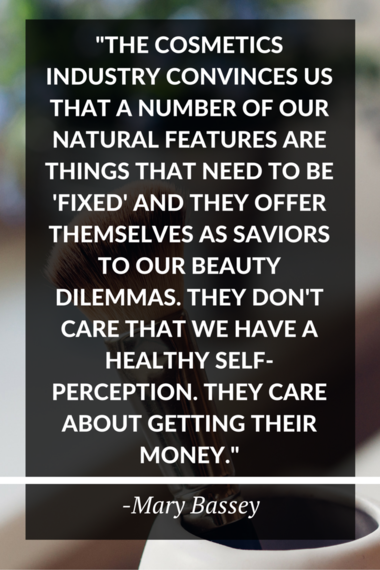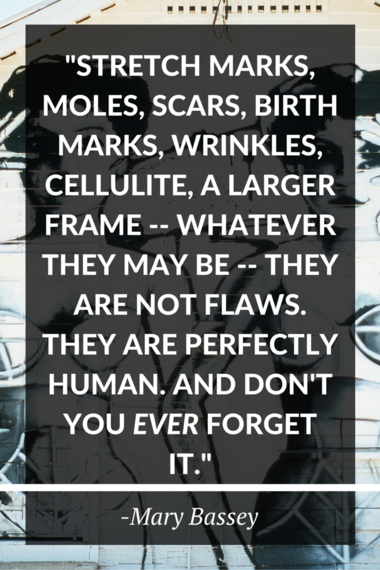
The quickness of my transition from girlhood to womanhood was literally marked on my hips. The lines made their permanent residence there and they do not plan on leaving anytime soon. Nor do I want them to.
Even as a tween, I always thought of my stretch marks as tiger stripes. And as I type these words, I am also seeing them as lightning on a human sky. But I am not the only woman with a celestial body. In fact, I am in great company. About 70% of women have stretch marks and 90% us who have experienced the miracle of giving birth have them too. Science says that these striated lines appear when the middle layer of our skin, the dermis, grows so fast that our collagen production is interrupted. Collagen is the major protein component in our connective tissue and when it is in short supply, stretch marks can appear. You could say that our womanhood packs a punch and our bodies know it. I see this as a good thing.
But as I got older, I quickly learned that stretch marks, scars, and things of the sort are not meant to be viewed from a positive light. They are meant to be the source of our insecurities as we stand in front of our mirrors, negatively auditing our bodies. A writer by the name of Taiye Selasi said the following in her article, Nothing Here Needs Fixing: Why I Stopped Listening to the Beauty Industry: "The cosmetics industry thrives on fanning women's insecurities, convincing us that there is always something to be fixed." Their marketing strategy is as genius as it is sinister, making people believe that there are perpetual problems with the appearance of women's bodies. And if you can convince people of this while positioning yourself as having the solution to those problems, you will have a faithful consumer base forever indebted to you.
Fortunately, for the past few years, there has been a resistance to negative body image. Body positivity has garnered mainstream attention and several campaigns have been launched, encouraging us to "love our flaws." And the more that phrase has become a popular mantra, the more I could not help but consider the irony in that statement. Think about it: if there is a flaw, there is a standard. We cannot call something flawed without the existence of its standard. And when it comes to a woman's beauty, the standard is often set by the way women are shown in the media we consume. And in an overwhelming majority of the images we see, we find that "the girl in the magazine does not even look like the girl in the magazine." With the insane amount of airbrushing coupled with the cosmetic procedures many celebrity women undergo, we are shown images of them but hardly do we see what they actually look like. In essence, what our eyes perceive to be a realistic standard does not actually exist. And if the standard does not exist, then neither do my superficial "flaws."
This is precisely why I refuse to call my stretch marks, scars, my kinky hair, and even the small space between my two front teeth "flaws." I refuse to see these parts of my body as "issues" that I have come to love instead of just normal parts of being a human being that I have come to embrace. The human body is not the issue; society is. And the moment that I learned that there is a difference between loving your "flaws" versus loving the normal aspects of living in human skin, I looked at every dot, every mark, and every little feature on my body in a whole new light.


